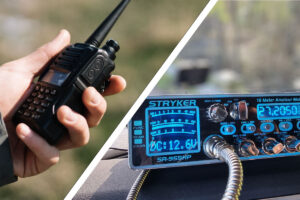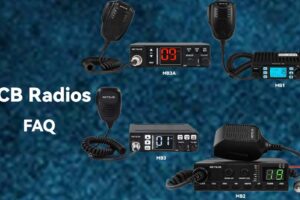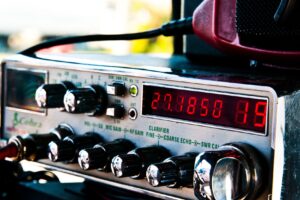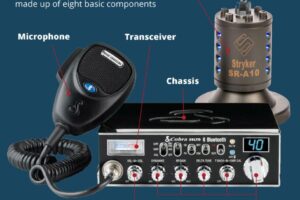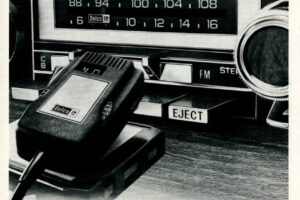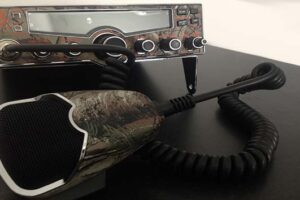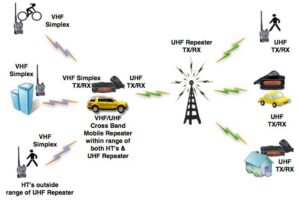Cb Radio Regulations: Navigating Legal Guidelines
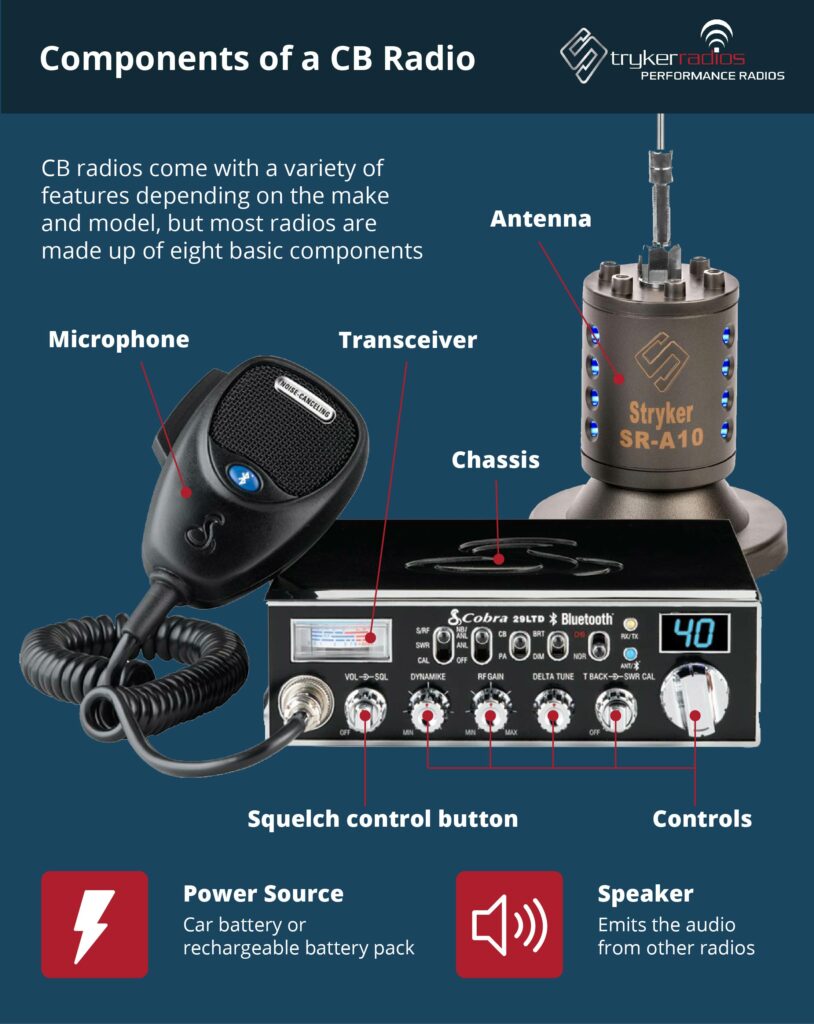
CB radio regulations are essential for all CB radio users to understand. They ensure smooth communication and prevent interference.
Citizen’s Band (CB) radio has been a popular communication tool for decades. Truck drivers, hobbyists, and emergency responders rely on it. But, like any technology, there are rules to follow. Knowing these regulations is crucial for effective and legal use.
This guide will help you navigate the key rules and guidelines. Understanding CB radio regulations can enhance your experience and keep you compliant with the law. Let’s dive into the essential rules you need to know.

Credit: deltatangodxgroup.com
Introduction To Cb Radio
Citizens Band (CB) radio has been a vital tool for communication. It is popular among truckers, hobbyists, and emergency services. This blog will guide you through the basics of CB radio regulations.
History And Evolution
CB radio began in the 1940s. It was created for small businesses and personal use. Over time, it became a key tool for many. Truckers used CB radios to share road conditions. Hobbyists enjoyed communicating with others locally and globally.
In the 1970s, CB radio saw a boom. It became a cultural icon. Movies and songs featured CB radios. The technology evolved, making CB radios more accessible. Today, CB radios are compact and powerful. They continue to be a key part of many lives.
Importance In Communication
CB radios play a critical role in communication. In remote areas, they are often the only means of contact. Truckers use them to share traffic updates and safety tips. During emergencies, CB radios can be lifesavers. They help people stay informed and coordinate help.
CB radios do not rely on cell towers. This makes them reliable in disasters. The simplicity of CB radios adds to their appeal. Anyone can learn to use them. They are an essential tool for clear and immediate communication.
Legal Framework
Understanding the legal framework surrounding CB radio regulations is crucial for anyone interested in using CB radios effectively and within the law. These regulations ensure that CB radio operations are standardized and do not interfere with other communication systems. Let’s dive into the key aspects of this legal framework.
Regulatory Bodies
CB radio use is regulated by various bodies to ensure compliance with national and international standards. In the United States, the Federal Communications Commission (FCC) is the primary regulatory body overseeing CB radio operations. The FCC sets the rules that dictate how CB radios should be used, including frequency allocations and power limits.
Other countries have their own regulatory bodies. For instance, in the UK, the Office of Communications (Ofcom) is responsible for managing CB radio regulations. These bodies work to prevent interference with other radio services and ensure safe and effective communication.
Key Legislation
Several key pieces of legislation shape the rules for CB radio use. In the US, the FCC’s Part 95 rules are the most critical. These rules outline everything from technical standards to operational guidelines. For example, they specify that CB radios must operate on 40 channels within the 27 MHz band.
In the UK, the Wireless Telegraphy Act 2006 and Ofcom’s regulations cover CB radio usage. They set similar standards to those in the US, including frequency allocations and power limits. Adhering to these regulations is essential to avoid fines and ensure your CB radio operates legally.
Are you aware of the specific regulations in your country? Understanding these can save you from potential legal issues and enhance your CB radio experience.
Licensing Requirements
When it comes to using CB radios, understanding licensing requirements is crucial. This ensures you are operating within legal boundaries and avoiding potential fines. Let’s break down the essentials of licensing, so you can focus on enjoying your communication experience.
Who Needs A License?
Are you wondering if you need a license to operate a CB radio? Generally, no license is required for CB radio use in the United States. The Federal Communications Commission (FCC) allows you to operate without one, provided you follow their rules.
However, there are exceptions. If you plan to use a CB radio in a commercial setting or outside the U.S., other regulations may apply. Always check local laws to be sure.
Application Process
Although you don’t need a license for personal CB radio use, let’s say you do need one for special circumstances. The application process is straightforward. First, visit the FCC’s website and download the necessary forms.
Fill in your personal details, and submit them either online or via mail. The FCC typically processes applications within a few weeks. Once approved, you’ll receive a license that’s valid for ten years.
Do you find this confusing? Don’t worry, online forums and CB radio communities are great resources. They can offer guidance and answer your questions.
Licensing might seem daunting, but it’s easier than you think. Following these steps ensures you’re compliant and can focus on enjoying your CB radio. Have you had any unique experiences with CB radio licensing? Share your thoughts and help others navigate this process.
Operating Standards
CB radio enthusiasts must adhere to certain operating standards to ensure smooth communication and avoid interference. Knowing these standards helps you maximize your CB radio experience while staying within legal boundaries. Let’s dive into the essential aspects of operating standards, focusing on permitted frequencies and transmission power limits.
Permitted Frequencies
CB radios operate within a specific range of frequencies allocated by regulatory authorities. In the United States, the Federal Communications Commission (FCC) designates 40 channels within the 27 MHz band for CB radio use. These channels range from 26.965 MHz to 27.405 MHz.
Sticking to these frequencies is crucial. Using unauthorized channels can lead to fines and equipment confiscation. If you have a multi-channel CB radio, ensure it’s configured to operate only within these permitted frequencies.
Transmission Power Limits
Another key aspect of CB radio regulations is transmission power limits. The FCC sets the maximum allowable power output for CB radios at 4 watts for AM transmissions and 12 watts for SSB (single sideband) transmissions.
Exceeding these limits can cause interference with other radio services and attract penalties. If you want better range, consider upgrading your antenna rather than boosting transmission power. A high-quality antenna can significantly enhance your communication range while staying compliant.
Have you ever faced interference issues with your CB radio? It might be due to someone exceeding transmission power limits. Adhering to these standards helps everyone enjoy a clear and reliable communication experience.
Equipment Regulations
CB radio regulations can be quite complex, especially when it comes to equipment. Understanding what devices are approved and the restrictions on modifications can help you stay compliant and make the most of your CB radio setup.
Approved Devices
Only devices that meet specific standards are allowed for CB radio use. These standards ensure that your equipment doesn’t interfere with other communications. The FCC has a list of approved devices that you should check before making a purchase.
Make sure your CB radio has the proper certification. Look for the FCC ID number on the device. This number signifies that the equipment has passed regulatory standards and is safe to use.
I remember buying my first CB radio without checking its approval status. It led to a lot of frustration and wasted time. Don’t make the same mistake—verify before you buy.
Modification Restrictions
Modifying your CB radio might seem like a good idea, but there are strict regulations around this. Changes to the transmitter power, frequency, or other components can lead to penalties.
Unauthorized modifications can result in your equipment being confiscated. Plus, you might face fines. Always consult the FCC guidelines before making any changes to your CB radio.
If you’re tempted to enhance your CB radio’s performance, ask yourself: Is it worth the risk of non-compliance? Stick to approved settings to avoid trouble.
By understanding and adhering to these equipment regulations, you can enjoy clear and reliable communication without the headache of legal issues. Stay informed and keep your CB radio experience smooth and trouble-free.
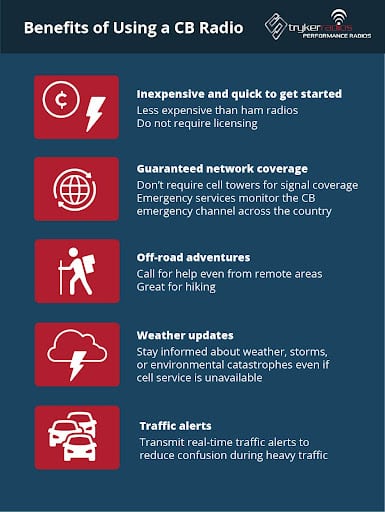
Credit: strykerradios.com
Communication Protocols
Understanding communication protocols is crucial when using CB radio. It ensures clear and effective communication. Following these protocols helps you and other users stay organized and respectful.
Language Rules
Using proper language is essential in CB radio communication. Avoid offensive words and keep your language clean. This isn’t just about politeness—it’s a regulation to maintain order on the airwaves.
Stick to commonly understood terms and phrases. This makes your messages clear and reduces misunderstandings. For instance, using “10-4” instead of “okay” is a standard practice.
Remember, CB radio is a public communication tool. Your words can be heard by anyone on the same channel. Choose them wisely.
Etiquette And Best Practices
Good etiquette goes a long way in CB radio communication. Always listen before you speak. This prevents interrupting ongoing conversations.
Keep your messages short and to the point. Long-winded messages can clog up the channel. Other users might be waiting to communicate important information.
Use your CB handle (nickname) consistently. This helps others recognize you. It’s also a fun part of the CB radio culture.
Respecting others is key. If someone asks for a “break” (wants to join the conversation), let them. This inclusivity makes the CB community strong.
What other etiquette tips do you find useful? Share your thoughts!
Enforcement And Penalties
Citizens Band (CB) radio is a popular communication tool for many, but it comes with its own set of rules and regulations. Understanding the enforcement and penalties associated with CB radio use is crucial to avoid legal trouble. These regulations are in place to ensure fair and responsible use of the airwaves.
Common Violations
Common CB radio violations include using unauthorized frequencies, excessive power, and offensive language. Using frequencies outside the allocated CB bands can interfere with other communications, leading to potential hazards.
Excessive power, beyond the legal limit of 4 watts for AM and 12 watts for SSB, can cause interference with other electronic devices. Offensive language or harassment over the airwaves is strictly prohibited and can result in severe penalties.
Fines And Legal Consequences
Violations of CB radio regulations can lead to significant fines and legal repercussions. For instance, using unauthorized frequencies can result in fines up to $10,000 per violation. This is a steep price for not following the rules.
Excessive power use also attracts hefty fines and can lead to equipment confiscation. If you’re caught harassing others over the CB radio, you could face legal action, including potential jail time for severe offenses.
Are you aware that repeat offenders face even harsher penalties? The Federal Communications Commission (FCC) takes these violations seriously, and repeated non-compliance can lead to a lifetime ban from using CB radios.
Understanding these penalties and staying compliant is crucial. Have you ever wondered if your CB radio setup is fully compliant? It might be worth double-checking to avoid these severe consequences.

Credit: www.rfcafe.com
Future Trends
The world of CB radio is evolving rapidly. As technology advances and regulations shift, it’s essential to stay informed. Let’s dive into some future trends that could impact your CB radio experience.
Technological Advances
Technological advances are set to revolutionize CB radio. Digital modes are becoming more popular. They offer clearer communication and better range.
Another exciting development is the integration of CB radios with smartphones. Imagine controlling your radio through an app. This could make it easier to use and more accessible to new users.
Manufacturers are also focusing on reducing interference. Newer models come with advanced filtering options. These can significantly improve your listening experience.
Potential Regulatory Changes
Potential regulatory changes could also shape the future of CB radio. Governments are reconsidering current rules. This could mean more freedom for CB users.
For example, some countries are looking at increasing the power limits. This would allow for longer-range communication. However, this could also lead to more crowded channels.
Another possible change is the relaxation of licensing requirements. This could make it easier for beginners to get started. But, it might also lead to an increase in untrained operators.
How do you think these changes will affect your CB radio usage? Will they make it better or more challenging? Stay engaged, stay informed, and keep your radio on.
Frequently Asked Questions
What Are The Rules For Using A Cb Radio?
CB radio users must follow these rules: use FCC-approved equipment, operate on designated channels, avoid profanity, respect communication etiquette, and limit transmission power to 4 watts.
Is Cb Radio Regulated?
Yes, CB radio is regulated by the FCC in the United States. Users must follow specific rules and guidelines.
Can I Use A Cb Radio Without A License?
Yes, you can use a CB radio without a license in the United States. Follow FCC regulations and guidelines.
Do You Need A Permit To Use A Cb Radio?
No, you do not need a permit to use a CB radio in the US. Just follow the FCC rules.
Conclusion
Understanding CB radio regulations is crucial for all users. These rules ensure safe communication. They also prevent interference with other signals. By following guidelines, you avoid legal issues. Stay informed about local regulations. Knowledge keeps you compliant and respectful. Enjoy clear and trouble-free CB radio use.
Happy communicating!

